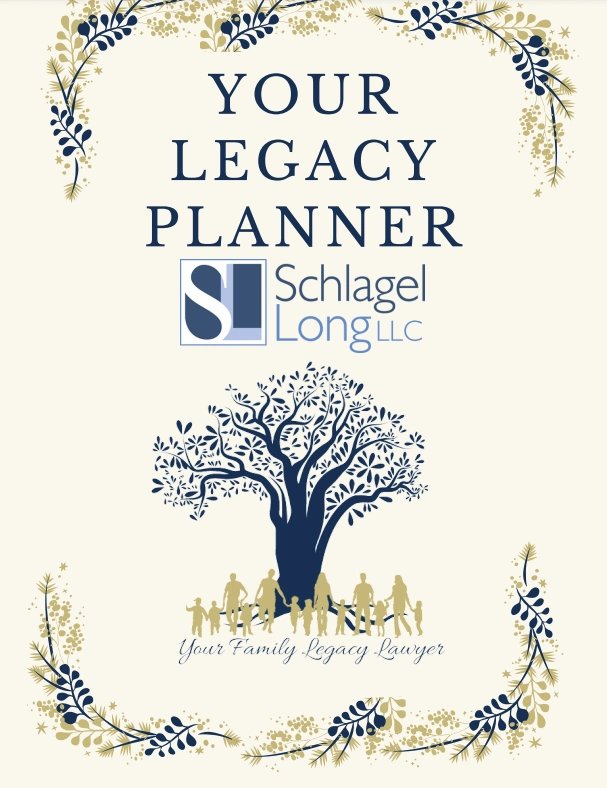“Some people are concerned that the new conservative 6-3 majority on the Supreme Court will roll back protections for non-traditional families. Regardless of the decisions at the Supreme Court, or the impact on the state family courts, there are many ways that non-traditional families can maintain control.”
Today’s non-traditional family are not just LGBTQ couples, but families undergoing gray divorces, blended families, stepchildren, multinational families and children born through assisted reproductive technologies, referred to as ART, in a recent article titled “How to Plan for LGBTQ, Blended Families, Cohabitation, Other Nontraditional Families” from Financial Advisor.
Importance of Estate Planning for Non-Traditional Families
The key is having an estate plan prepared that is flexible so that last wills, trusts, and all documents reflect the non-traditional family very clearly and do not leave room for courts to make decisions. Here are a few new elements to consider:
Gendered Pronouns and Definitions
Importance of Using Specific Names in Estate Documents for Non-Traditional Families
Gendered pronouns and definitions. Ideally, your estate documents should use specific names of individuals, not pronouns. We live in a fluid society and using pronouns could lead to unnecessary complications.
Assisted Reproductive Technologies (ART)
Importance of Explicitly Including Children Conceived by ART in Estate Plans
Recognize ART and its implications. If there are children conceived by ART, they need to be explicitly included as children of the family. DNA testing can result in a child inheriting assets from a parent they never knew. It may be wise to exclude biological children, parents or siblings who do not have a relationship with the family.
Trust Protector/Trust Decanting
Importance of Flexibility in Trust Provisions for Non-Traditional Families
Trust Protector/Trust Decanting. By including provisions that permit trusts to be decanted, that is, transferred from one trust to another, your estate planning attorney will create flexibility to allow a trust protector (a non-fiduciary appointment of a third party) to make changes. The selection of the trust protector is particularly important, as they could have a large impact on the overall plan.
Marriage, Non-Marital Relationships, Divorce, Remarriage
Importance of Precise and Flexible Estate Planning for Future Changes in Family Structure
Marriage, non-marital relationships, divorce, remarriage. An estate plan needs to prepare for future changes with precision and flexibility. Protecting the family, its privacy and dignity can be done by limiting the information in the last will, which becomes a public document. While we can’t know what the future holds, we can plan for change.
Importance of Voluntary and Disclosed Prenuptial Agreements for Non-Traditional Families
Prenuptial agreements. State laws vary on what is acceptable and procedurally necessary for a prenup to be enforceable. Typically, the agreement must be voluntary and include full disclosure of both parties’ financial situation. In some states, post-nuptials can be prepared, if the parties can’t agree on the document before they are legally wed.
Importance of Updating Beneficiary Designations for Non-Traditional Families After Divorce
Divorce creates special estate planning issues. Beneficiary designations need to be changed for life insurance, IRAs and other non-probate assets. Take affirmative steps to ensure that ex-spouses, or soon-to-be exes are removed as beneficiaries on all accounts, including pensions and insurance plans subject to ERISA.
Importance of Cohabitation Agreements and Tax Planning for Non-Traditional Couples
Cohabitating couples. Marital gifts are tax free, but that is not the case for people living together. Estate planning and tax planning needs to be done, so the surviving partner is taken care of. This may include the creation of a cohabitation agreement, similar to a prenuptial agreement.
Planning for Sickness and Death
Planning for sickness and death. Explicitly stating wishes for end-of-life medical treatments, including feeding tubes, respirators, heart machines, etc., is step one in having an Advance Medical Directive created. Step two is deciding who is empowered to make those decisions. Someone who is unmarried but has a partner or a second spouse needs to be authorized. Note that when an individual is hospitalized, stepparents may attempt to deny access to spouses’ children, or children may block access to a stepparent. There should also be a Do Not Resuscitate (DNR) or Physicians Orders for Life-Sustaining Treatment (POLST) in place with the person’s wishes.
Importance of Advance Medical Directives and Empowered Decision-Making for Non-Traditional Families
Non-traditional families of all types need to protect the family with estate planning and documentation. Issues about protecting children, making health care decisions for a critically ill partner and control of assets must be addressed in a way that respects the individuals and their families while working within the law.
Reference: Financial Advisor (Feb. 2, 2021) “How to Plan for LGBTQ,
Blended Families, Cohabitation, Other Nontraditional Families”
Estate Planning Legacy Planner
Everyday, we work with people who have lost someone they care about. There is so much these folks have to organize and manage. This planner organizes the information they will most need, in our experience, saving so much time and unnecessary cost. Besides organizing your information, it's so important to have a good estate plan that will keep your family out of court and conflict.
Please use the button below to receive a free copy of our Estate Planning Legacy Planner, an organization tool essential to any estate plan designed to help your loved ones take care of you and handle your affairs.
Please fill out the form below so we can serve you better. By completing the secure form you will receive instant access to your own copy of the Estate Planning Legacy Planner.
Want To Learn More About Protecting You and the People You Love With a Simple, Custom Estate Plan?

